|
To those of you who have seen Steph from Citizen Inventor talking at TEDxEastEnd a few week's back at the end of Jan (photos here, video later), here is your next chance to get hands on with the spacecrafts that has been waved around on stage (courtesy of Pocket Spacecraft). And of course, curiosity is all you need - so come along to tour around and have a play with spacecrafts. Sign up here: http://www.meetup.com/CitizenInventor/events/149322422/ We shall be heading off to Bristol to Pocket Spacecraft's home on the 23 Feb, where you'd be able to see the facilities for manufacturing one of the spacecrafts that has been waved on stage. You'll be surprised to see the facilities (it's friendlier than you ever imagined) and you will have your hands on the spacecrafts! We'll announce the exact plan closer to date. But to ensure you got the date saved and train ticket booked: We will start the day at 11am and the event is expected to last for most of the day, pub to follow in our usual tradition, of course. While we are at it, February certainly seems a busy month - we've just announced another two more events organised by our friends as well. If you have any citizen science related project, event, articles - feel free to keep them coming! http://www.meetup.com/CitizenInventor/ Remember, let curiosity take you to places you have never imagined. Looks like we are indeed starting the year by spreading around geographically - we had our field trip to ESTEC in the Netherlands on the 18th Jan. It's our first field trip, and first oversea trip too! We received amazing hospitality at ESTEC from Robert, who has been answering every single question from all of us in great details, We absolutely love his space walk! ESTEC has been extremely generous and Robert half of the day showing us buildings that are not usually open to the public on the weekend, such as ERASMUS. Speaking of being a collaborative community, it all started and happened thanks to Brodie, one from our community (and wears the think tank hat too), and of course, the amazing team at ESTEC, especially Anja who has helped to make it all happen. Definitely love this kind of spirit and the energy on making things happen! It was a very informative trip. We heard a lot about the facilities, the research and the technology transfer from space to other areas of application. We heard about the researches in drop tower, Zero G flights (31 cycles of drops), and the radiation exposure experiments, some of the information can be found at the Erasmus Experiment Archive. We also got to see, close-up, the scorch mark made on re-entry on the capsule and hear about the way experiments and technologies are set up for testing rover design for Mars on simulated Mars landscape. Also thrilled to discover a battery research center there - definitely something to watch out for. There was a lot of information on the international space station in ERASMUS, while some of us entertained ourselves with walking in the European and Russian sections of the international space station, others were taking the chances to have discussions with Robert. Just before lunch, we heard a lot more about the material experiments and the space specific material issues - like rusted metal is really harmful because rust will be flying around freely - by extension this can happen to a lot of harmful substances. Then there was also a discussion on 3D printing moon base using moon dust as materials, we saw a sample of the 3D printed building block (using not lunar soil but the experiment was guided by the properties of lunar soil), you can read more about it here. And of course, for project/programme managers and collaboration facilitators of all sorts, there's the Concurrent Design Facilities which is a kind of hot room where decisions are evaluated and made with all experts negotiating their requirements on the spot. Meeting twice a week for 4 hours each week, the mission planning could last for 10 years. It has also been such an amazing field trip with so many joining us from the Netherlands, let's shorten the distance across the channel!
Keep an ear on @citizeninventor on twitter, we'll sort something out for sharing photos! Having been focusing on the low down on hands on space hacks for our last couple of events, on the 20 Nov we had a change of perspective - before we get back to hands on development and wrap up the year with "Making Interplanetary Internet": http://interplanetaryinternet.eventbrite.co.uk/). We, together with Satellite Applications Catapult, hosted an intensive whirlwind of 6 space companies telling us about their entrepreneurial stories - the market they saw and the business they've created. To get a well rounded flavour, our speakers are from upstream (spacecrafts) and downstream (businesses that uses satellite data) space sector. 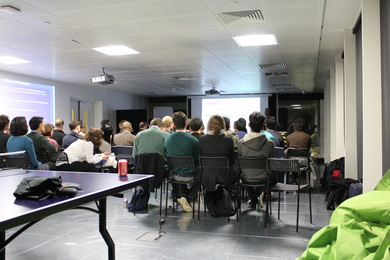 We had ping pong table at the Rainmaking Loft, which was perfect for anyone needed a warm up before the talks commence or an exercise after the pizza! We also had bean bags to cater for those who needed to relax instead. Sam from Satellite Applications Catapult started the evening by providing an overview to the exciting growth of the space sector in the UK, followed up by Steph's quick intro to what you can do as citizen for space. In a series of lightening talks, we've cut the chase and dive straight into the exciting innovation and enablers from our speakers:
It was interesting to hear the story of how the panel entered the space industry. Citizen Inventor has been talking about bio-payload but Graham from Avanti is well ahead of us there - he already looked at sending worms to space back at school! It was very generous for Satellite Applications Catapult and Rainmaking Loft to sponsor the pizza, beer and venue hosting. Special thanks goes to all those extra pairs of hands that have made a swift tidy up happen - so we can all go to the pub! In line with the usual Citizen Inventor style, we had our extended Q&A in the pub and some of us left the pub only when it kicked us out...
Finally, for those of us who like toys - watch this space. We're about to get some Christmas presents from Michael from Pocket Spacecraft... stay tuned! You've heard from inspiring DIYers in Space technologies over the last couple of events, so you probably already know that space industry is more than the spacecrafts and planets. This time we want to showcase space technologies that can be applied to our day to day life without us thinking about it consciously - weather data, GPS and more, from our experienced panel of space startups. The Satellite Applications Catapult and Citizen Inventor are jointly holding an event on the 20 Nov 2013 in London inviting everyone who is curious about the space industry and its application. Driven by innovative new business models, reduced launch costs and advancements in technology the sector is providing unprecedented opportunities for hackers, developers and entrepreneurs. Come hear from our panel of space startups and be inspired to become an “astropreneur”! This time, the event will be in a lightening talk format to give you an intensive preview of everything space. Plenty of chances to network and ask questions served with beer and pizza, generously hosted by Rainmaking Loft. Maker, Hackers, Entrepreneur and the Curious - come and (re-)invent with space technology! Curiosity is all you need. Ticket for our third space talk is on sale now:
On the 28 August 2013, we've had our second event on space: "Getting Going with Space, hands on"! The British Interplanetary Society generously hosted the event. We have the great pleasure of meeting the Chairman of the BIS: Alistair. Alistair has kindly showed us around the library of the BIS just before the talk begin - a reward to all those who arrived early! Open source is a familiar term for those who are used to working in the software industry, but hang on, did we hear "open source space program"? Yes, that's what Alex from SpaceGambit UK spoke about. It's enabled by makerspaces/ hackerspaces x open source hardware x open source software. All these openness helps to advance our curiosity and technology. Open hardware like Arduino is cheap, like 30GBP. The wiring diagram is open to public, so you can make your own if you wish. More importantly because the schematics are open, it makes it easier for people to create an enhanced version, or other breakout boards (think of plug-ins) based on this. And what is an Arduino anyways? As we later hear, "it's like an electronic cellotape", said Laurence, referring to it being something that gets thrown at any problem without putting in a huge investment. 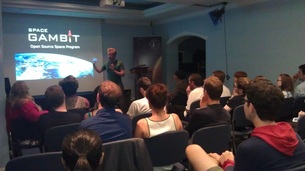 Space Gambit is looking to promote space through in education, challenges (working with NASA - NASA Asteroid Grand Challenge) and funding projects. The project funded by Space Gambit under the space habitat theme included bio-reactors and Mars spacesuit (the glove - we all have to start somewhere). A list of all project funded can be found on their recent announcement: http://www.spacegambit.org/spacegambit-announces-project-funding-for-hackerspace-space-program/ Watch out for future rounds of funding in 2014 from Space Gambit, with each project getting up to $20000. [Slides for this will be uploaded shortly.] Laurence, a physicist working on the software of a Sprite - a spacecraft from the KickSAT project - has convinced us on citizen contribution to a space project. Writing code for Arduino in SPAAAAAACE! An amazing retrospective on the KickSAT project. He also covered the the topic of small satellites and how it helped us to kick start the personal space age. The slides can be found here: http://prezi.com/tmzdf0zawh-d/kickstarting-the-personal-space-revolution/?utm_campaign=share&utm_medium=copy 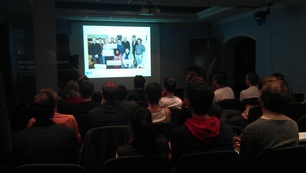 Laurence introducing the dev team behind the BIS backed KickSAT Sprites. The British Interplanetary Society has backed a fleet of Sprites of the KickSAT project and Laurence has been working on the software of this fleet. He showed us the code that would be loaded onto the spacecraft on one page, all written in the familiar Arduino IDE (Energia). We've completely packed the house at the British Interplanetary Society. We've also occupied the entire length of tables right in front of the bar (if anyone has got a photo of that to share, send it over)!
Alex spoke about putting the inventor back to Citizen Inventor! We hope you are now really convinced to go ahead and get hands on - start a project, contribute ideas, update our wiki with useful resources: http://citizeninventor.wikia.com/wiki/CitizenInventor_Wiki, share your project http://www.citizeninventor.com/submit-to-showcase.html, tweet to us.... the list goes on! Citizen Inventor has its first ever event yesterday. Of all sciences and engineering disciplines, we have decided to head straight to Space for our first event! With an unmissable line-up and the generous sponsor on venue by The Open Data Institute. Our first ever speaker is Dr Sam Adlen from the Satellite Application Catapult, who studied water on Mars in his PhD! It was great to hear the encouraging words on the government's new investments in the UK space industry, thus the opportunities. We've also heard many initiatives the Satellite Application Catapult have to lower the barrier of entry and facilitate technology innovation, for the Space industry and for the downstream satellite applications. One of them is to get data on earth observation arriving at our finger tips more seamlessly from the growing number of satellites and constellations that are to be launched. We also had a glimpse on the future (10+ years) missions related technologies. And, of course, we got loads of tips on who to go to for support and funding! And thanks Sam for presenting the TechDemoSAT to us on request. Then we have Michael Johnson, a physicists heavily involved in two of the highest profile Kickstarter space project - the founder of Pocket Spacecraft and the co-creator of KickSAT. Pocket Spacecraft is the the first interplanetary citizen space exploration mission. Their goal is "to provide generic tools for space exploration and science, accessible enough for non-technical and technical people to use, for fun or serious science". This personal space age is facilitated by the Open Source Space System - so global community of engineers and hobbyists would be able to contribute to an extensive open source open access library of tools and techniques. It couldn't be more excited for the makers amongst us to hear that plans are to print spacecrafts in space with Prepositioned Orbiting Printers! Michael also shared his invaluable experiences and tips on how to fly things into space practically. We also had the great pleasure to have a detailed look on all the chips that was passed around: Last but not least, thanks to all those who have made it to the event in this glorious summer day. It surely was refreshing to have a pint, or two, or three, where we had our Q&A session with both speakers! There is so much to talk about regarding space - some of us only started making our way home as the pub encouraged us to do so by locking up... Without you, there's no community. It's always good to have some actions after being in a room, so here are some suggestions: - Save the date: 19/20 Oct. Satellite Applications Catapult Hackathon is on! - Interested in having your spacecraft for the price of a PC? Get yours on Kickstarter before too late (by 26 Aug). - Come to the next meetup, spread the love to like minded people and get hands on! With just under a week to go, we are starting to count down to our first event on the 24th July, in London. We are very excited about the line up, come and learn about how you can participate in space technology, science - no, it's not that far away. Moreover, we do use satellite data a lot: weather, GPS, terrain images, etc - it's more relevant than what we think! Curiosity is all you need, we mean it. We would like to open up science for citizen to participate in, come hear about it to believe in (even better, get going with) it. Get your ticket before they run out! Join us at http://www.meetup.com/CitizenInventor. |
SubscribeCategories
All
Archives
December 2016
|

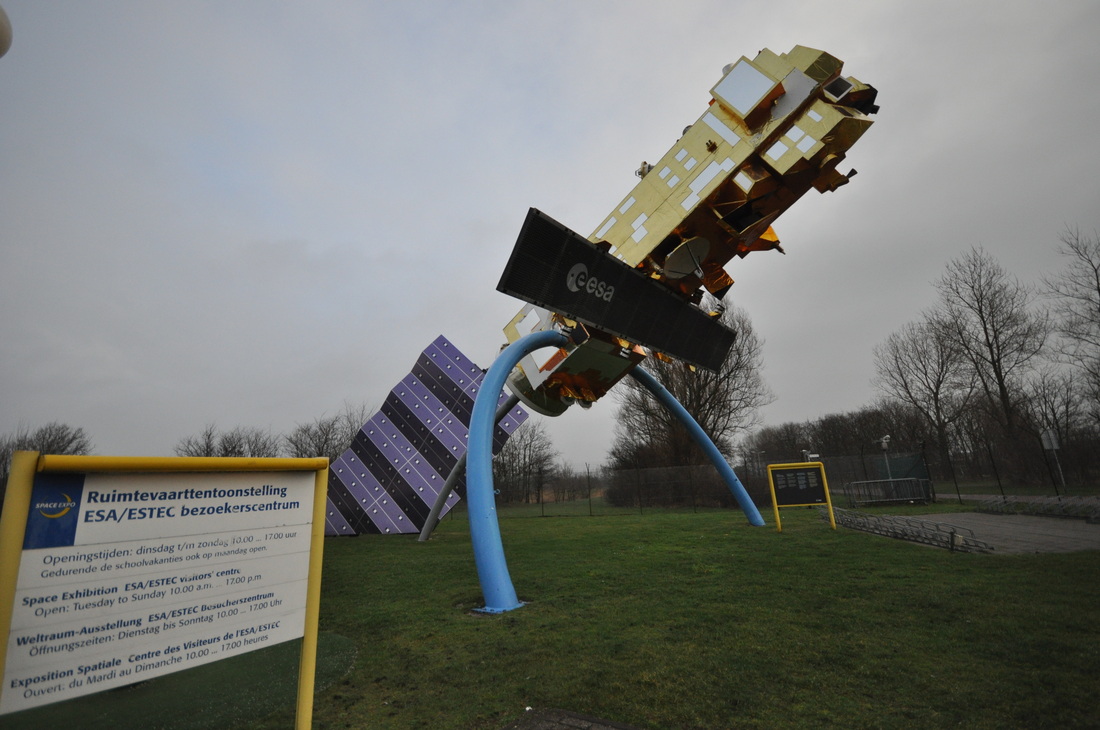
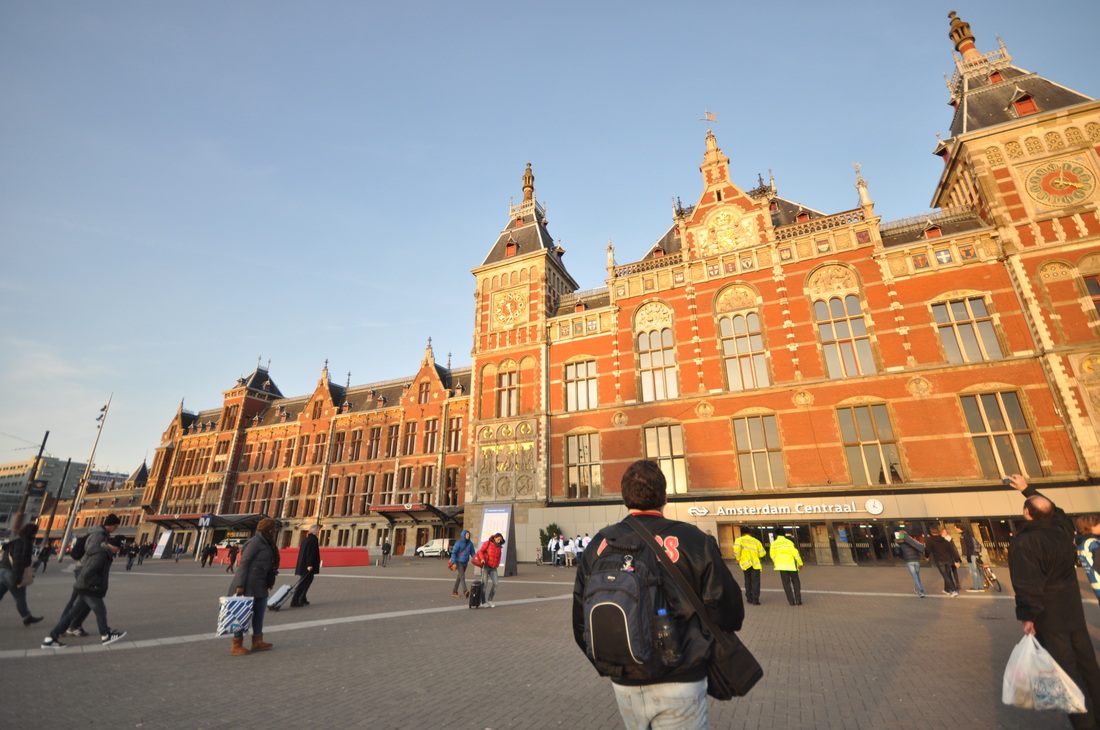
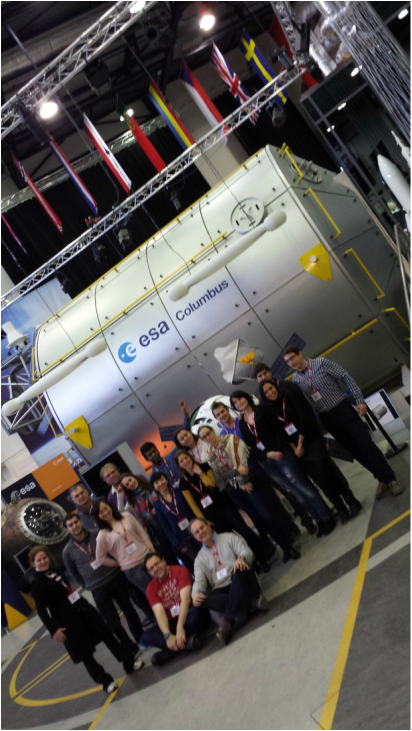
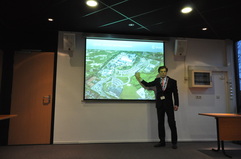
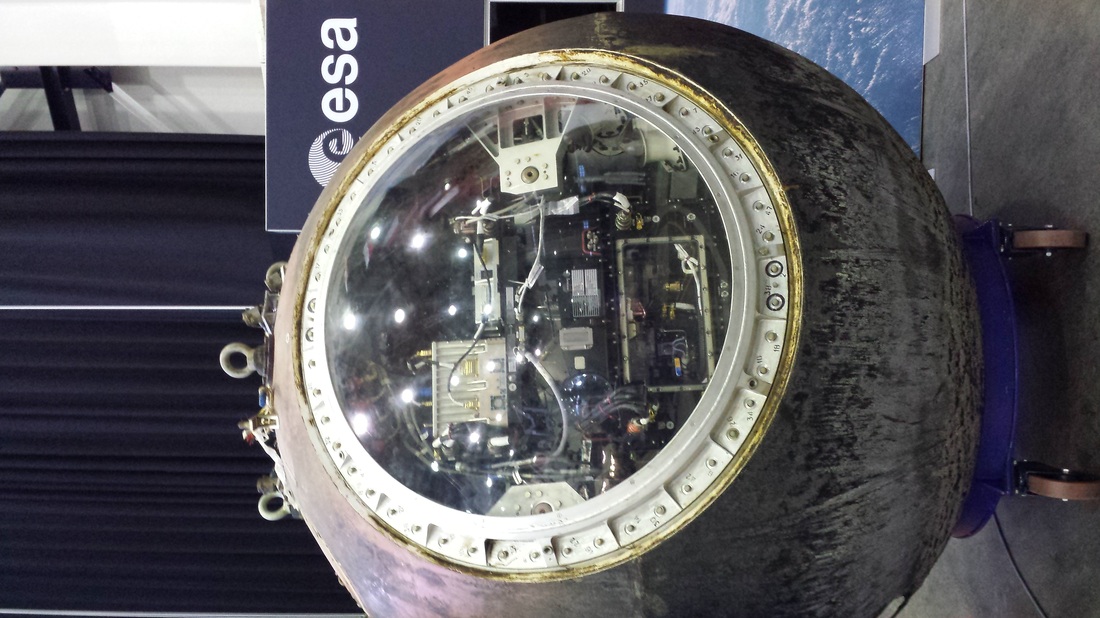
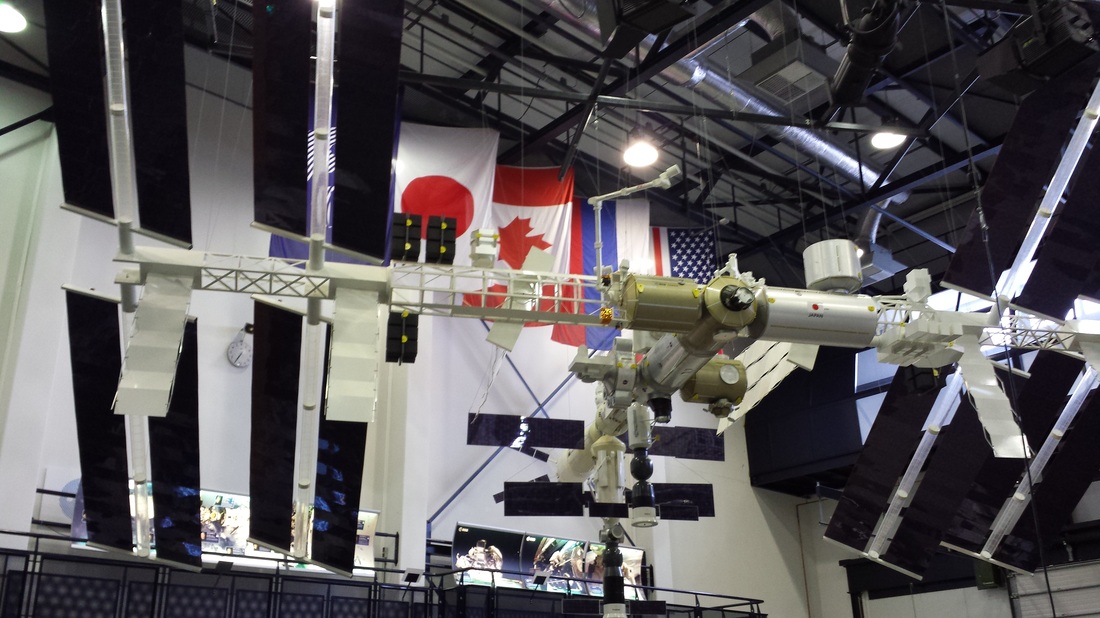
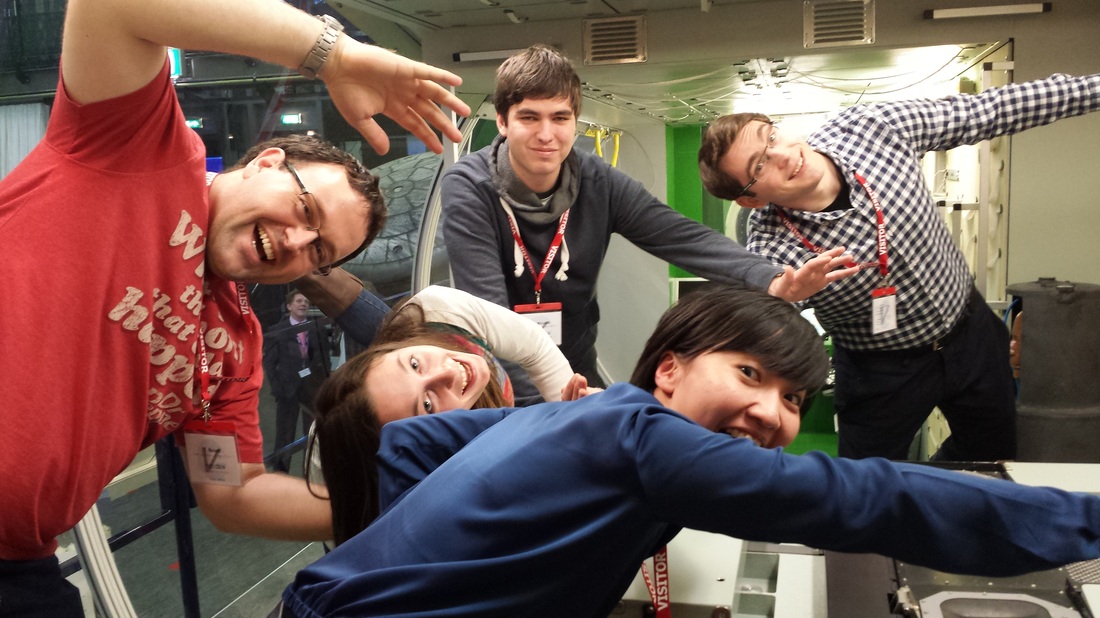
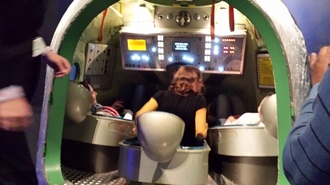
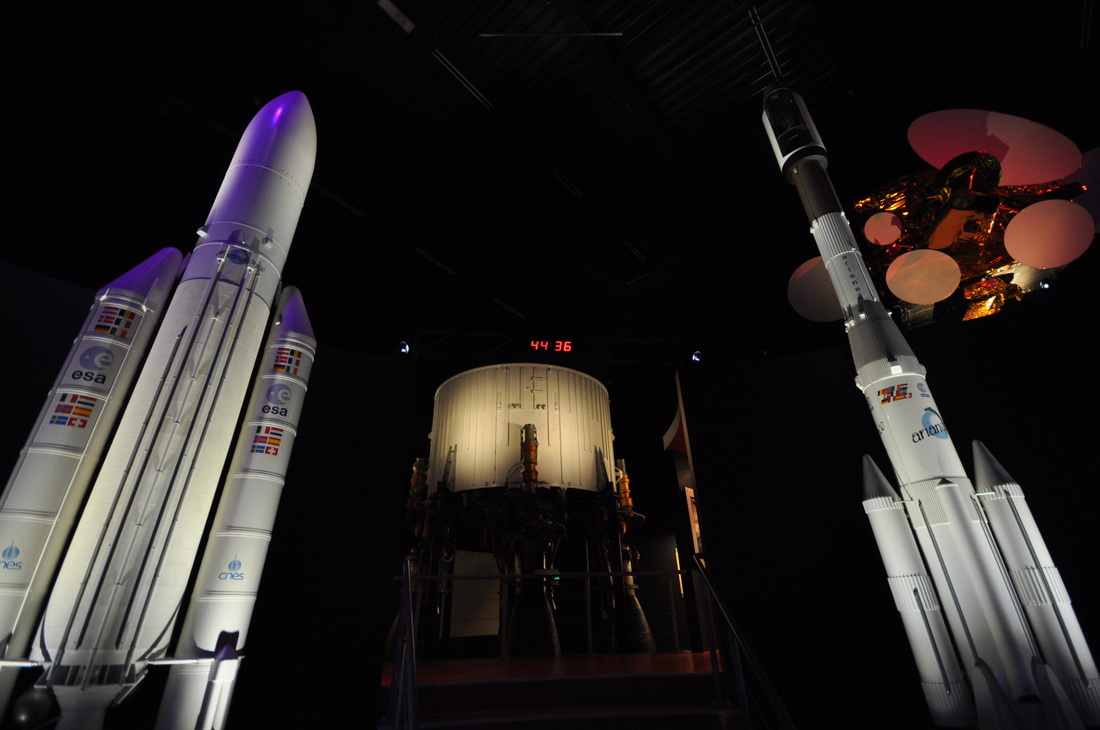
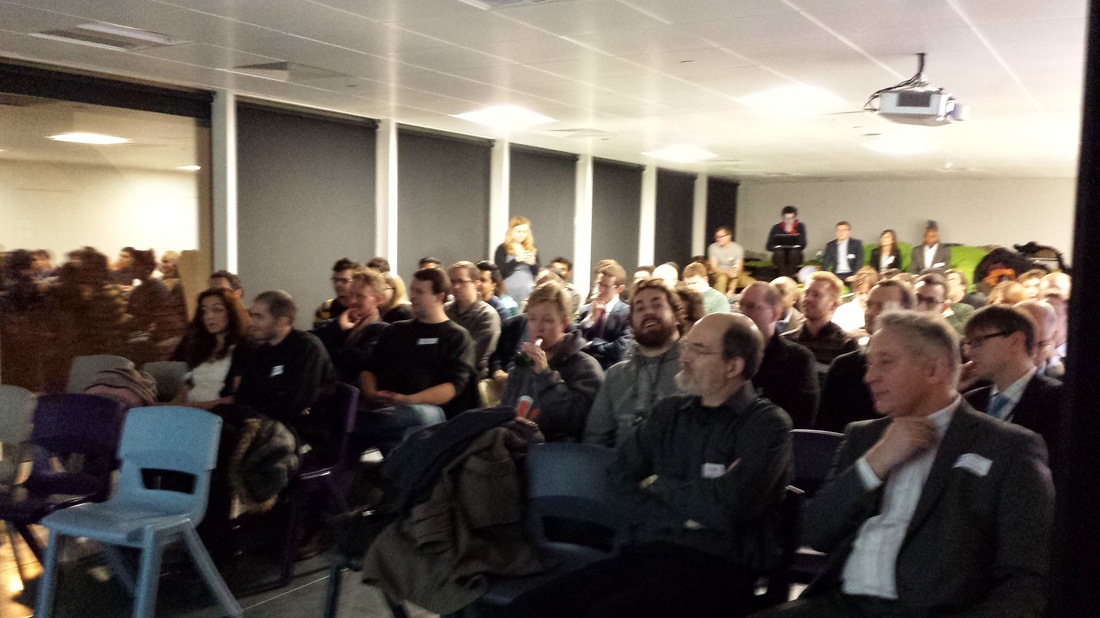
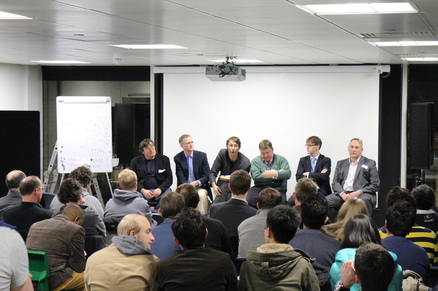
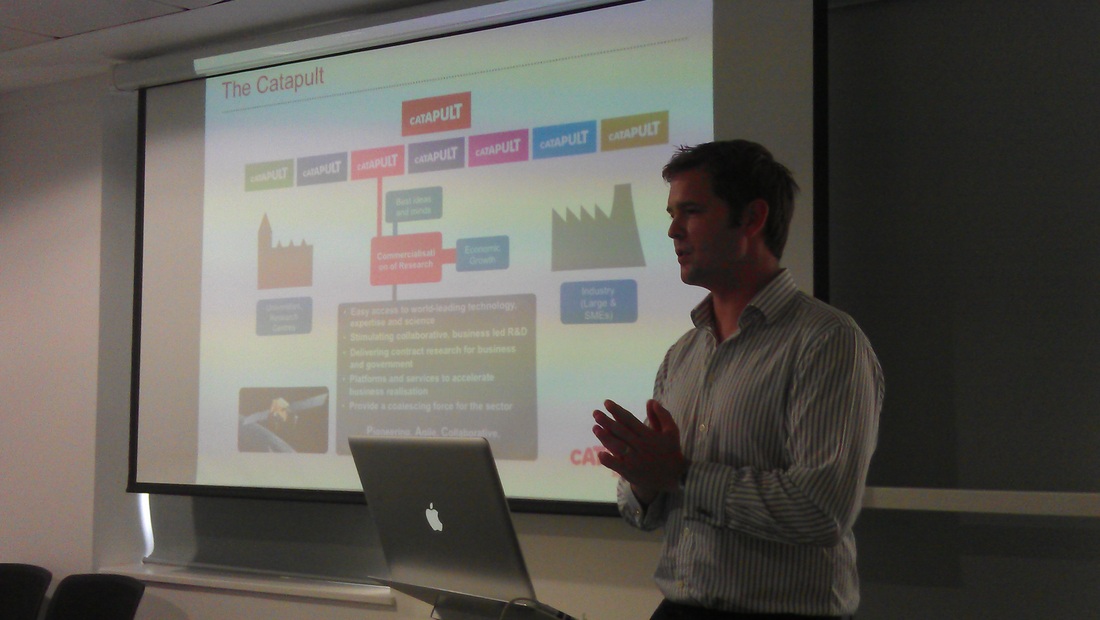
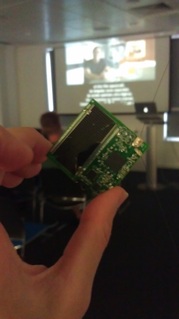
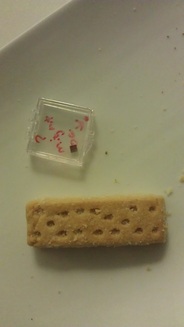
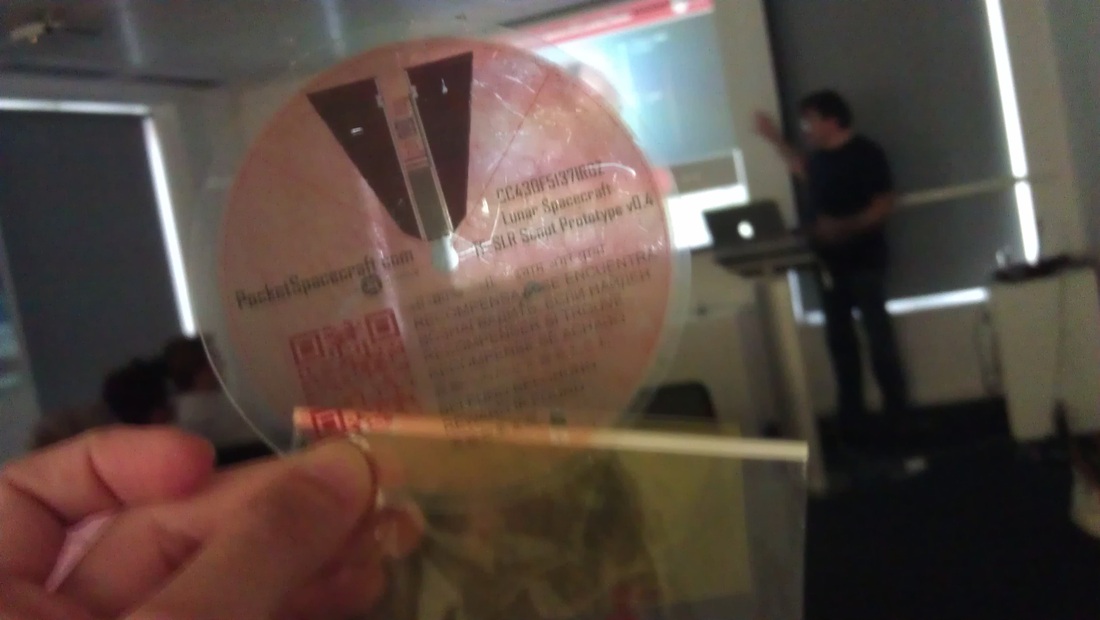
 RSS Feed
RSS Feed
